Hello, lovely readers.
I hope you have a big mug of Joe and possibly a lovely *SANE snack on hand, and are sitting somewhere comfy. This is a looooooooong read. You may want to grab a blanket in case you need a nap in the middle.
Today we’re going to talk about stress, because I am as certain as I can be that next to my insomnia, stress was my biggest enemy in the fat-loss arena, as well as generally messing up all manner of bodily operations. Stress causes physiological changes in our bodies and if it goes on too long all sorts of mayhem ensues. The 18-month-long siege on my adrenal glands wreaked havoc with a variety of hormones that play key roles in the stress response, metabolism, and the balance of salt and water in the body. Cortisol is one of those hormones, and cortisol serves an important role in controlling the metabolism and use of proteins, fats and carbohydrates. My research into adrenal fatigue clearly called out the body’s inability to burn fat when the adrenal glands are exhausted. Bummer. If you are not convinced that stress can have that big of an impact on fat-loss, read this.
Shame on me for not sitting up and paying attention to the stress a whole lot sooner. Shame on me for not making changes way before 18 months had rolled past. But I am not going to dwell on what caused me to get in this pickle – not in this blog post, anyway, although that may make for a highly entertaining read down the road – because at this point it just is what it is. Instead of looking back at what got me here I am going to focus on sharing what I am doing to reduce stressors in my life as much as I can. While it is true there are some things we can’t change, there is a lot we can. Let’s concentrate on the latter.
Before we begin though, I want to point out that stress is very individual. What is stressful for me may be something irrelevant to you. What is stressful to you may seem trivial to me. What is important is that you work out what stresses YOU. I don’t give a flying fig what other people think about my stressors. Simply because they stress me means I need to find a solution to stop them doing so. Don’t let anyone tell you that the things that stress you are silly. It doesn’t matter what anyone else thinks, only what you think. Only enlist the opinions of people who will help you find a solution to your stressors, not tell you it’s something you shouldn’t be stressing about.
Here’s what I did to minimize the stressors in my life:
SEPARATING WORK FROM PLAY
I completely separated my day-job from my personal life. My personal life includes this blog, my cookbooks, and everything I do in the name of *SANEity. Making this separation possible meant buying a new laptop which houses only personal stuff on it, and I will never connect it to my employer’s corporate network. I likewise removed everything personal from my work laptop, so I am very clear about when I am doing my day-job and when I am not, because my technology no longer allows me to multi-task work and play simultaneously. And HURRAH! for that. Now when I am doing stuff on here I am not continually interrupted and stressed seeing work emails pop up, which inevitably lead to me working far more than I should, when really the world wouldn’t end if I dealt with it first thing Monday morning. If something serious does bubble up on the work front out of hours, people know how to get a hold of me. I am more than open to getting a call if there’s an emergency or someone really needs help before the next work day rolls around.
For me this is a drastic change from always being connected at work. In fact, if there are any of my in-real-life friends reading this I can imagine they’re wondering where Carrie Brown went and who exactly is writing this stuff. I have always been known as a workaholic – always online, always responding to email and instant messages no matter the time of day or night. It used to feel like I was “on” 24*7 and never had any opportunity to rest, relax, recover, or give my brain a break. But as well we know, all work and no play make Jill a dull girl. The reality is that when we are less stressed we are more productive, although society tries to tell us that the more we do the better we are. It’s a lie. As my stress levels got higher and higher it was taking me longer and longer to accomplish the same amount of work, and that work was not my usual high quality either. In order to work at it’s peak, the brain needs to have downtime. NEEDS. You have to keep the machine well-oiled if it is to run most effectively and not break down. In the case of our brains, oil = rest and recreation.
Separating work from play was a huge de-stressor for me. HUGE.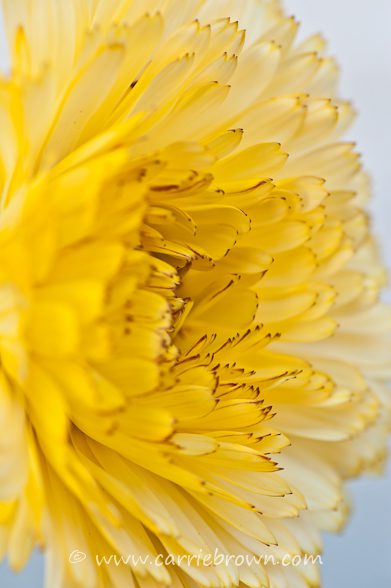
ORGANIZING
For the past several weeks I have been huddled under a siege of to-do lists – some of which have existed for more than a year, and others I have been furiously creating as a kind of mind-dump exercise. You have to define the problem before you can effectively tackle it.
I am generally a super-organized person by nature, but the last 18 months have been so crazy that a lot of things started to slip, and some fell through the cracks altogether. With some things it didn’t really matter, but with other things the slippage created new problems on top. All of the slippages caused me stress – whether that was stress in the mornings because the clean laundry had not been put away for long enough that the contents of my closet were now in a crumpled heap and I had nothing ready to wear, or whether that was stress in the evenings because the dishwasher was full of clean dishes and the sink was full of dirty dishes and I didn’t have a plate to hand but was so tired I just went to bed without dinner, or whether that was ongoing stress because I hadn’t reconciled my finances in a few weeks. It is amazing how fast life can go sideways if little things stop getting done.
Capturing on paper everything I had to do and everything stressing me made me feel in control, and that right there eased the stress. As I read through the lists I realized – to my delight – that some of the things had been done and just not crossed off, so the lists automatically got shorter. Once I had what I felt was a complete to-do list, I figured out which ones were critical or urgent and marked them accordingly. In my critical and urgent list I included the things that were giving me the most heart-burn, making me worry all day, or keeping me awake at night.
For the remaining tasks I sorted them into categories according to how long the task would take. Sorting the list into smaller ones made the whole thing seem way less daunting and overwhelming. Living in clouds and clouds of ‘grey’ can be extremely stressful. Not knowing the size of the problem and constantly wondering if you are forgetting something can be very stressful. Once I got clear about what I had to do, just knowing that was a huge stress-reliever.
PURGING
I am not a hoarder by any stretch of the imagination. When my sister-in-law came on vacation she looked quizzically at me after the house tour was over and queried, “So where’s all your stuff?”. I don’t have a lot, but still, over the years things have accumulated – things that I no longer have a use for, clothes and shoes that I no longer wear, candles I knew I would never burn, gadgetry that had served it’s purpose, books I didn’t feel a need to read over, art that no longer moved me, Christmas decorations that would never see the light of day again, paperwork from the last 13 years. I’ll admit I had boxes from my last move 7 ½ years ago that had yet to be unpacked. It never occurred to me how weighed down I felt having this redundant stuff in my house until I sat down and examined everything in my life that might be causing me stress. So I went through closets and drawers and paperwork and simply moved out anything that was no longer relevant to my life now. Oh the sense of freedom in my brain when I posted 7 years of tax records into the shredder.
I didn’t start brazenly purging like a woman possessed. Instead of feeling overwhelmed by what seemed like such a huge undertaking, I systematically did a little bit every day – one drawer, one shelf, one box, one cupboard, until I had been through the entire house, packed it all up, and delivered it to Goodwill. Except the garage. I am unashamedly waiting for warmer weather before I embark on that piece of the project. Even though I am not completely done, just knowing that the garage is the only place I might have things I don’t need is liberating. The act of purging stuff made my brain feel like it was being purged simultaneously.
As a consequence of purging, every drawer, cupboard, shelf, and box got organized at the same time. The process involved emptying everything out, removing what was no longer useful or important in my life, arranging what was left (if there was anything left!), and putting it back. Thus this act of purging also got everything in order. Doing one area a day made the task very manageable, and usually took no more than 15 minutes. Every day I felt a little bit lighter, a little bit more in control, and then before I knew it the whole house was done. Hurrah!
The process of purging also wiped a load of things off my to-do lists. Gone are things that had needed to be cleaned, maintained, or otherwise cared for. The things that remain are simpler to find and the closets easier to clean because they are emptier. It also just felt really good to donate things to others that they may need or have a use for.
GETTING STUFF DONE
Once I had my to-do lists finalized, I set about getting things done. I started with the things on the critical and urgent list. Getting these done caused the biggest gain in stress-relief. These included things like getting my websites and images backed up to both offline and cloud locations (no more stressing about a catastrophic data loss), getting the taxes filed (no more stressing about whether I owed or not), and getting my oven fixed before it ran out of warranty (no more stressing about whether I would have to buy a new oven). Follow-ups: CrashPlan now backup all 400Gb of my data into the cloud for $60 a year. Are you kidding me?? I put off getting backups taken care of over $60 a year?? C-R-A-Z-Y. I don’t owe money to the IRS. Hurrah! And I do not need to buy a new oven, it was a simple over-the-phone fix. All that stress because I was worrying so much I didn’t have time to just get them done. I had similar results with all of my big stressors. Once I took care of them I was amazed at how simple the fix had been and how long I had carried that stress around with me for nothing.
The stress-relief I gained from getting these critical and urgent things done was enormous. Yes, I had to make time to do them. Yes, I had to put off other things to do them. Yes, I had to give up some play time to do them. YES! The rewards made up for all that a bajillion times over! To be free of that constant, nagging, background stress in my brain over the possibility of data loss, owing money, and having no oven was liberating beyond words. I have gained so much more time back now I am not spending time worrying about them.
Then I moved to the to-do’s categorized by how long the task would take. I took all the tasks that took 15 minutes or less and started working on them. Like my purging efforts, I systematically did a few at a time. I would set aside an hour a day and see how many of these short tasks I could get done in that time. Then once the hour was up I’d go off and do something fun, curl up on the couch with the ‘kids’ and a good read, or have a cup of coffee and a *SANE treat. Breaking it up into sections like this stopped it from seeming like this gargantuan task that would never get done. Doing all the short tasks first makes it feel like you are making blazing fast progress – and that’s always good for the soul. Seeing all those check marks is a huge encouragement to get more things done, and with each check mark there is more stress relief. I found that as I went along I could get more done because there was that much less stress and the to-do list was no longer overwhelming.
My short tasks included things like putting up the utensil hanging rails under my kitchen cabinets (no more stressing over finding cooking implements in cluttered drawers), putting up coat hooks in the closet (no more stressing over having nowhere to hang my jacket tidily), labelling the drawers in my office (no more stressing over where things were), and pruning the roses (no more stressing over whether they would bloom this year or not). If you’re wondering about the whole blooming thing, the scent of roses is like crack to me, so to have a whole pile of them blooming in my own backyard that I can smell whenever I need a pick-me-up is very important to my wellbeing. See? I told you stressors were very individual.
What I found in every instance was that once I got started on a task it was never as difficult, complicated, or big as I had imagined. Never. Experiencing this time after time makes it much easier to get started on tasks as I am not paralyzed by the thought of them any more.
It was amazing how much stuff I got taken care of by just setting aside an hour a day. The best bonus was that as tasks got done, the number of things slipping through the cracks got less, so I wasn’t inadvertently creating more to-do’s and more stress any more. After a very short time I got to the point where I was waking up on a Saturday and thinking, “I’ve got nothing to do. I can do whatever I want today!” instead of waking up and lying in bed feeling entirely overwhelmed and stressed about an endless to-do list, or a brain full of clutter that I was terrified I would forget.
This method of getting stuff done has been completely transformative.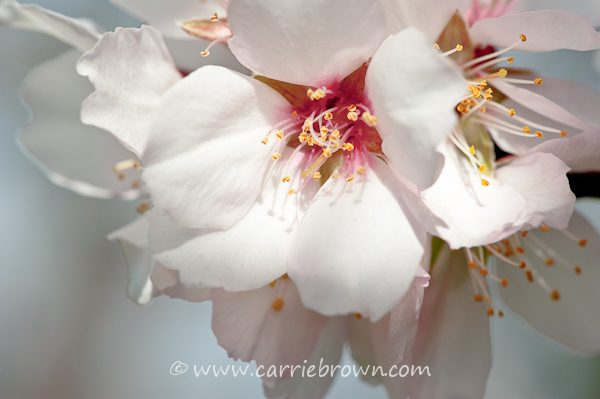
SIMPLIFYING
Once the purging and to-do lists were done (OK no, to-do lists will never be entirely done…) I wanted to simplify as many areas of my life as possible to reduce the chance of things getting so out of whack again, even if life gets crazy busy for a while. This meant simplifying possessions, paperwork, schedules, and tasks. I started to look at ways I could make life less complicated for myself.
Having purged the house of things that are not relevant to my life now, I made the decision to really ponder anything new I think I want to bring into the house. I created a set of criteria on which to base new purchases and I judge everything that I think I want to buy against it. Your criteria will be different to mine. I am just a lot more mindful that having more stuff creates a longer to-do list, and I balance that against how I want to spend my time, energy and brain-power.
I was stunned when I started going through paperwork how much of it went in the recycle bin or the shredder. Things I thought would be interesting to read but were no longer relevant, statements and bills that I also had stored digitally, instruction manuals for things I didn’t own any more, catalogs that were 5 (!) years (!) old (!), junk mail, tax records from years 2000 – 2007, Christmas cards from goodness-knows-how-many years, and on and on. One Monday I filled my 64 gallon recycle container so full of papers and catalogs that I could barely wheel it out onto the street for pickup. Do you have any idea how clean I felt after I watched the garbage truck empty it? Very. Now I am way more careful about what gets past the recycle and into a file or drawer in the first place. I open the mail as soon as I bring it in the house and I recycle as I look at each item. When a new catalog arrives that I do want to keep I immediately find the previous one and drop it in the recycle. I have signed up for every no-junk-mail service there is. I have cancelled paper statements and bills for every service that allows me to download a digital copy from their site. You get the idea. If you don’t let it in the house you will never have to decide whether to keep it or not. This also makes finding the info you do need much easier, and cuts down on filing and sorting time – simply because there is so much less to wade through.
I started using just one calendar (Outlook) instead of several different ones, and I run everything through that one calendar. I am hardcore about scheduling everything. While I realize that may sound boring, it has actually freed up so much more of my life because things that need to get done are getting done in a timely manner and without me constantly worrying if I have forgotten something or missed a due date. I wake up in the morning, open my calendar and anything that I have to do to keep life flowing smoothly and on track I do at the allotted time. What’s brilliant is that the rest of the time I am free to do whatever I feel is most important that day – which may well be reading a book, going for a walk, or taking in a movie – and my brain is free from worry. I find that by having everything written down it creates a plan, and I am far more likely to stick to a plan than if I just wake up and do whatever comes into my head first. Doing this means I am no longer thrown into crisis over having forgotten to do something or letting some task slide.
As well as using my calendar to schedule tasks, I started using my phone to set audible reminders for a few really important things – like taking my meds at the same time each day. If you are on critical medications, the stress of forgetting them can be huge. Setting a simple alarm on my phone stopped that stressor dead in its tracks.
I handle new tasks that pop up on my to-do list the same way I handled the BIG list when I got started. I tackle the critical and urgent tasks and the ones that are causing me the most stress, and then I set aside small blocks of time to take care of the other tasks, starting with the one that takes the least time. Once you have the main list down it is so much easier to just stay on top of new things that need doing. Having experienced the enormous benefits of getting stuff done I have got into the habit of doing new tasks straight away so they never have the opportunity to become big hairy monsters in my mind.
I looked for ways that I could make big things more manageable. One example is the tax return. Instead of the 4-day horror movie that I created for myself this year, I am now doing a little bit of tax prep for next year every month. I collect all the paperwork and receipts pertaining to the previous month and update a spreadsheet with business income and expenses. It takes at most one hour a month. When tax time rolls around next year it will simply be a matter of punching numbers into the return, which will save me 4 days of time and stress.
I looked for ways to stop little things turning into big stressful things. One example is laundry. Being single it can take quite a time to create a full load of dirty laundry, but that means I can run out of socks or undies before I’ve got around to putting a wash on. To stop that stress I now do smaller loads more often. Saving a few pennies on soap and electricity in no way made up for the stress running out of clean underwear caused. The same goes for dishes. I would fill the sink with dirty dishes until I had enough for a full load in the dishwasher, by which time loading the dishwasher became this big, time-consuming task. Now I load the dishwasher as I go, run it as soon as it is full, and empty it immediately so I can beginning filling it straight away. Little changes can make the biggest difference. While little stressors are lightweight on their own, if you have enough of them they can really weigh you down.
I looked at every activity and commitment that I have on my schedule and thought long and hard about whether or not each of them was necessary or just keeping other people happy. I thought about whether they were leading me towards my goals or away from them. I thought about whether they caused me stress or were restorative. Those thoughts lead me to step back from some habitual activities altogether, and had me saying to others, “I would love to help but I am not able to right now”. It is so easy to get caught up in constant busy-ness without stopping to think about whether it is actually beneficial in any way. If it isn’t, I stop doing it. There is no big gold medal for just doing more. Taking time to rest and rejuvenate are just as worthy of your time and attention.
THINKING SMARTER
Every day I spend a few minutes identifying any stressors in my life and if anything comes to mind I immediately make a plan for how I am going to take care of it. Throughout the day I am mindful of anything that causes me stress and either take care of it immediately if I can (like stopping at the very next gas station when the empty light comes on instead of hoping to save a few cents at another garage that may or may not show up before I run out) or make a note of it to review later. Later I take a few more minutes to review anything that I noted during the day and make a plan for reducing the stress. That plan may involve putting a task on a to-do list, scheduling time to take action, changing perspective on a stressor, or deciding that whatever it is is no longer important enough to allow it to be stressful. I have found that actively spending some time thinking about stressors every day gives me the opportunity to take care of them before they turn into something huge and unwieldy.
I realized that being kind to myself during this process would get me to my goal of reducing stress much quicker than if I beat myself up to get it all done in the shortest possible time. Being kind means taking one step at a time, breaking big things into smaller, more manageable pieces, and rewarding yourself when you’ve accomplished each task or set of tasks. Being kind means understanding that it will take time, and that’s OK. Even scheduling tasks for a later date reduces stress because you know that you have time set aside to take care of them. Being kind means building in time to do things that you enjoy. Being kind means knowing that you are worth taking care of and that you deserve to live a less stressful life. Being kind means recognizing that slowing down is a good thing. Being kind means saying “No” to other things until you have got your stress down to the level where it is no longer causing your body and brain physical harm. Being kind means knowing that reducing your stress is one of the most important things you can do for yourself.
I recognized how interrelated everything in our lives is and that stress not only affects every other area of our lives, but that every other area of our life can affect our stress levels. Alongside all that I did above, I built in several other practices that effectively help to manage stress: sleep, exercise, yoga, SANE eating, supplements, rejuvenation, and routine. You can read about what I do in those areas by clicking on each link.
That’s all I got.
Phew! Now I need that cup of Joe and a *SANE treat!
PS. Love the images and would love to hang them on your wall? Check out the gallery!

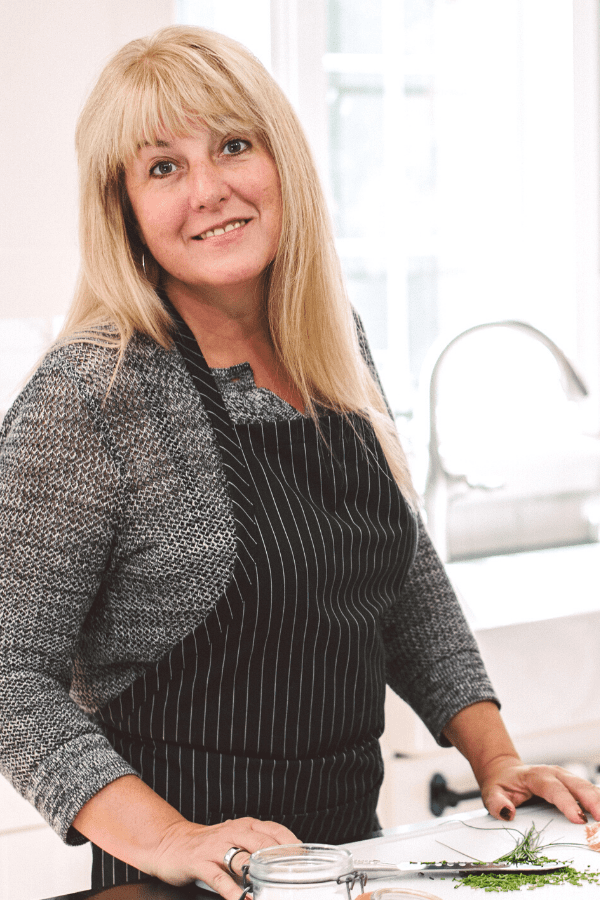
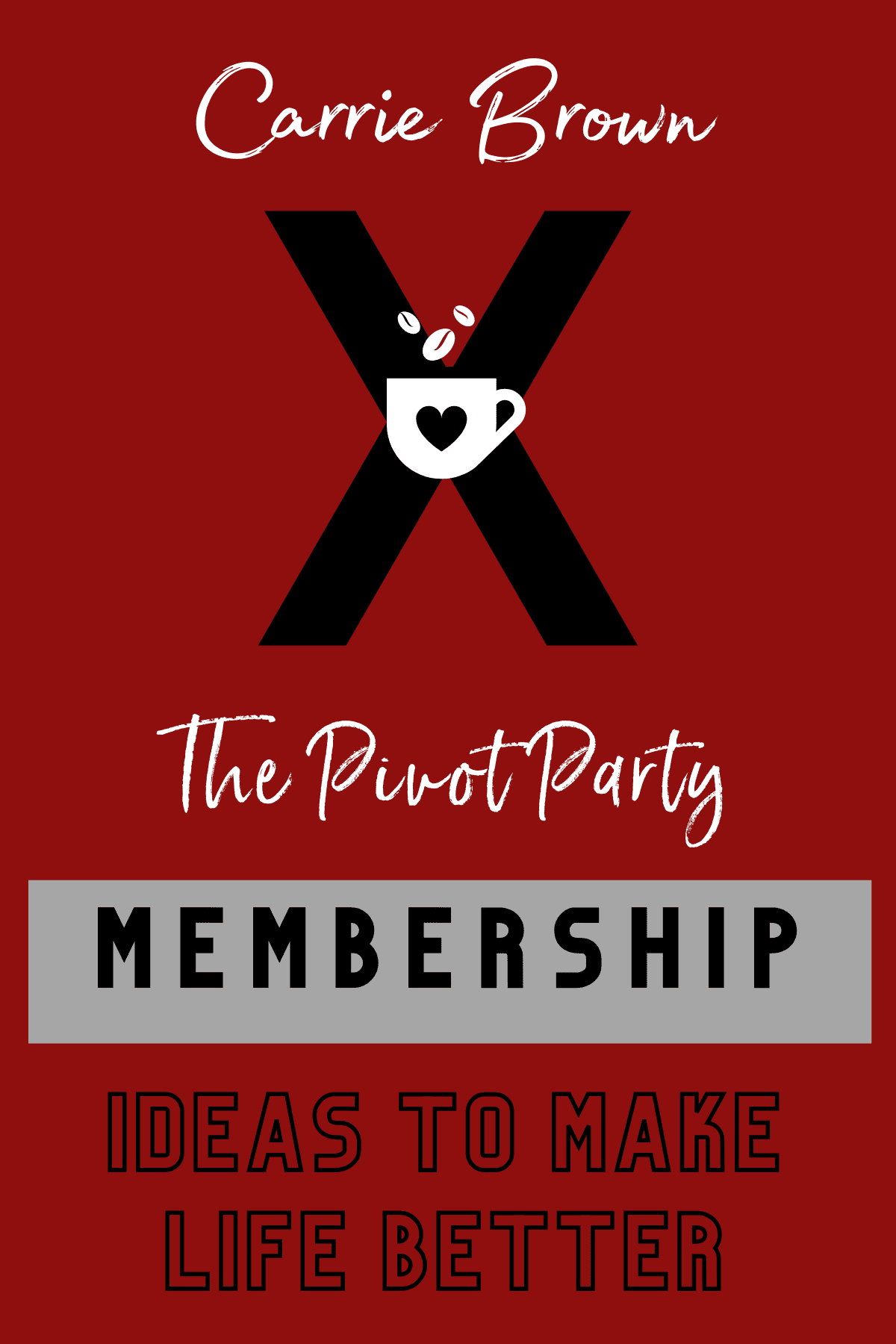
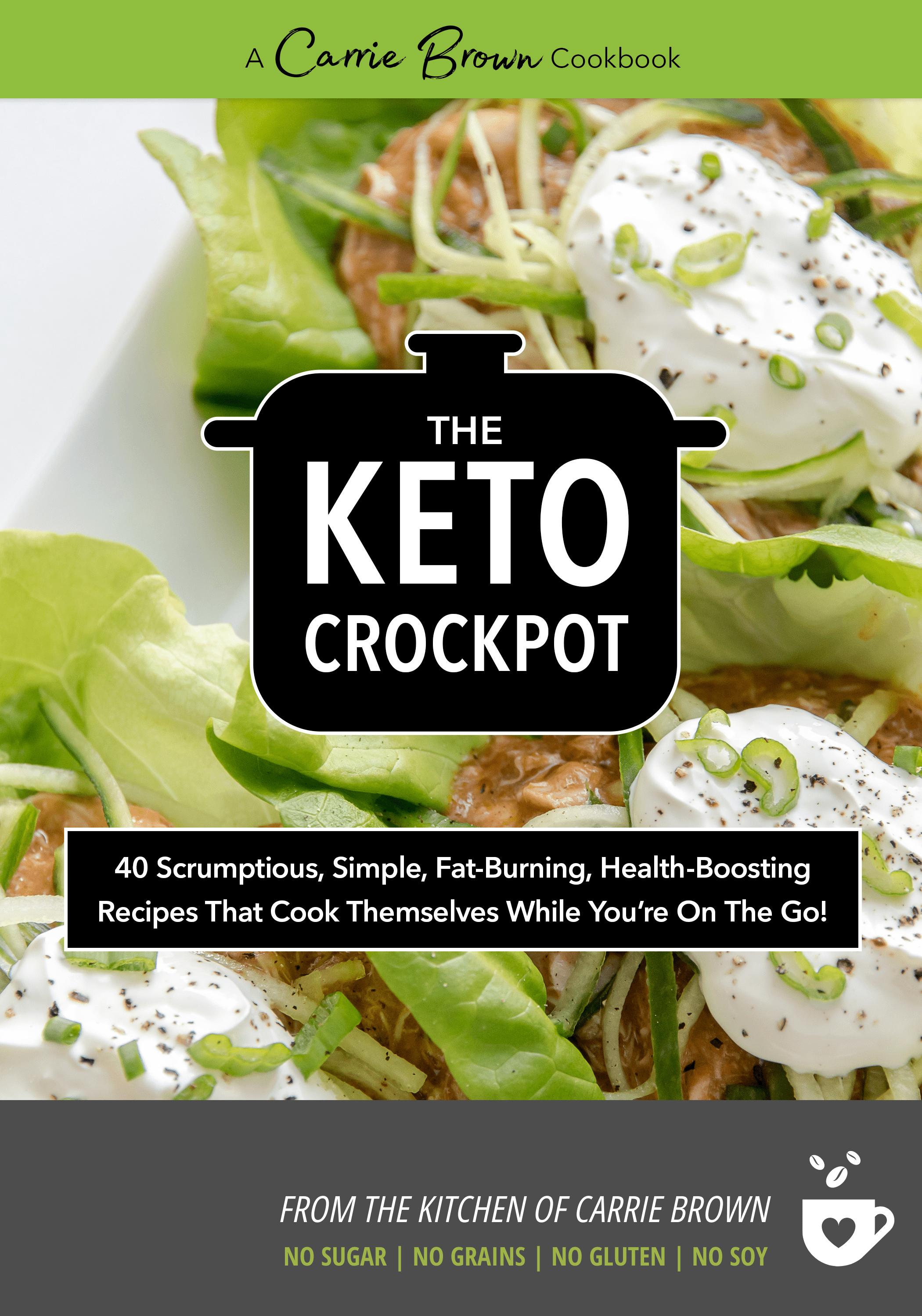
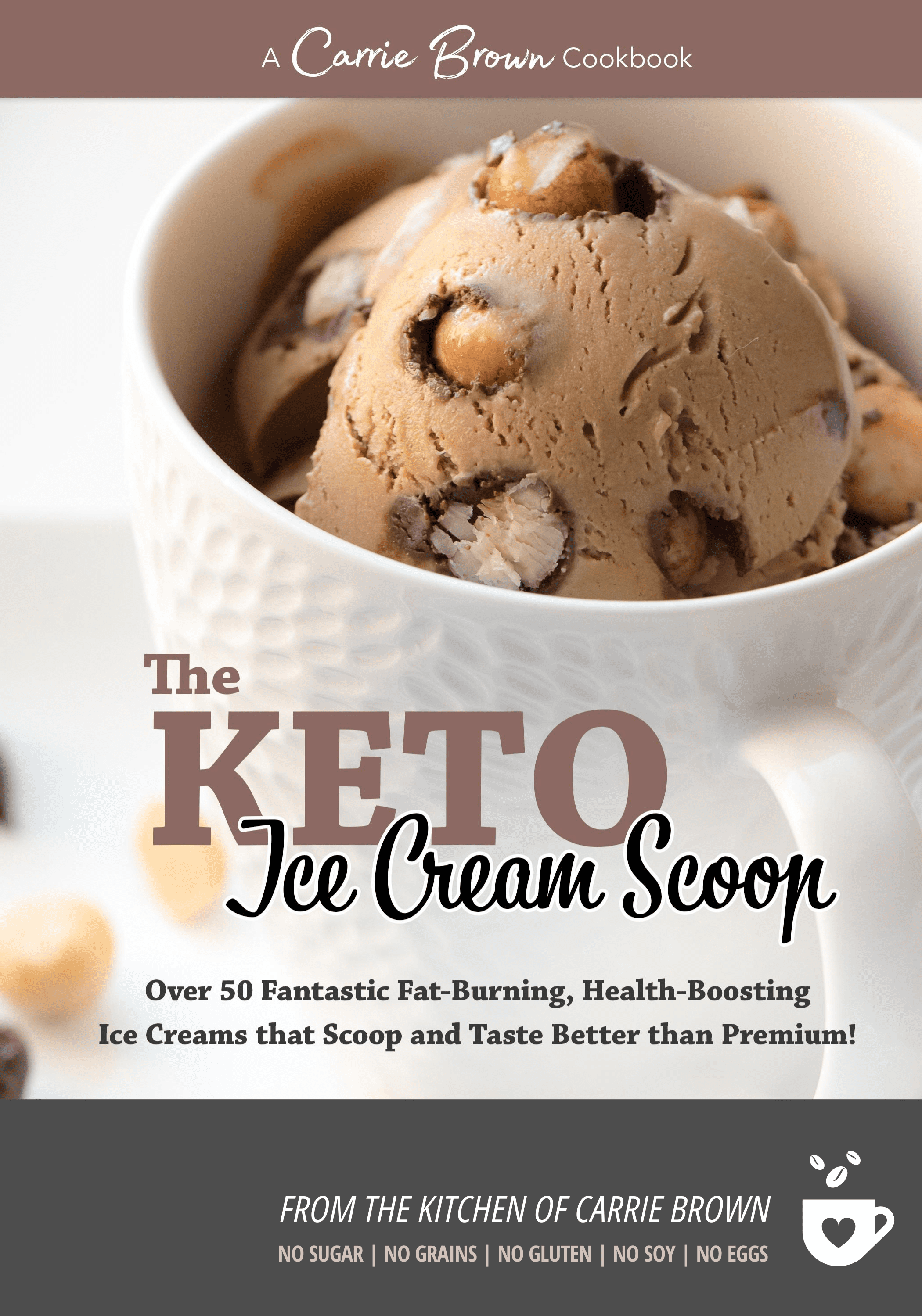
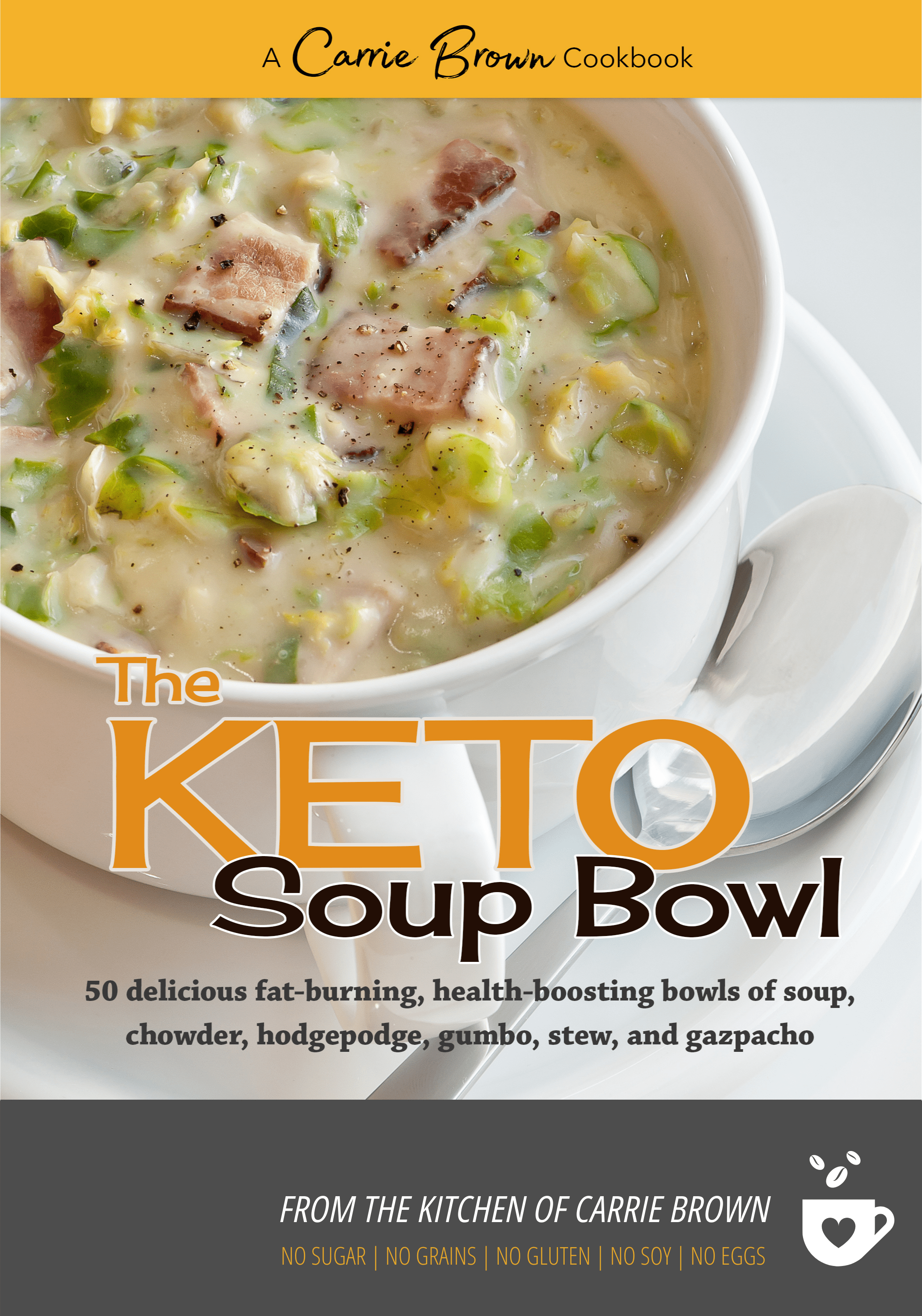
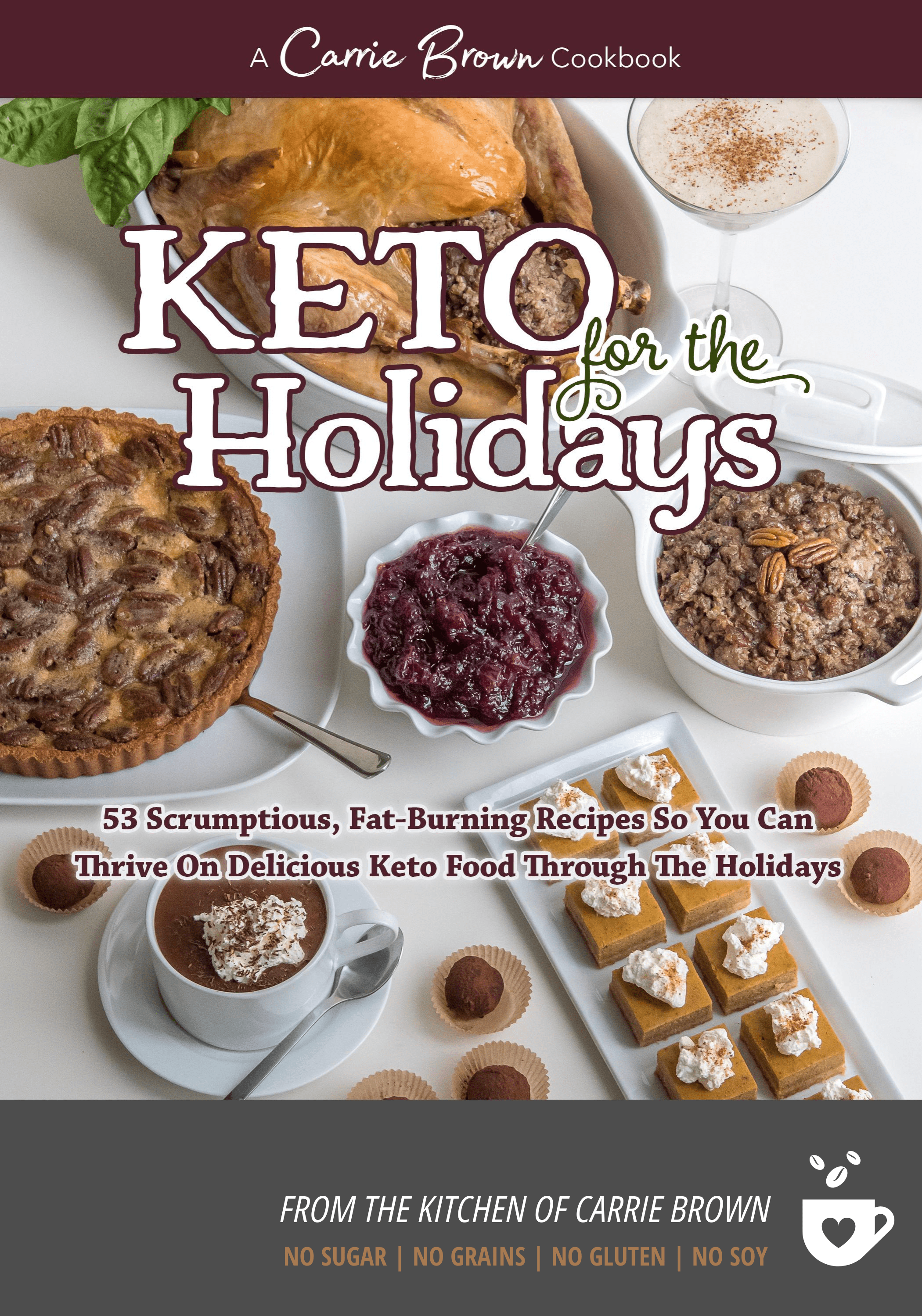








AllisonReally enjoyed this post. Had my morning cuppa joe and it was very lovely morning reading. Did you ever feel like you’re not sure who you are anymore? I mean, you changed so much about the way you think, work, do, that did it create any insecurity? I know all these changes were good and freeing and had all sorts of positive domino effects but even in our imperfections we are comforted so I was just curious if you saw any psychological fall-out of the “mental upgrade”. As always, thank you so much for sharing your path with us.
carrieAllison – you know it did create a sense of feeling lost, although I am not sure I would equate that with insecurity. It is still weird not having that feeling of chaos and constant racing, but I am getting to like it 🙂
PamLoved your long and insightful post today, Carrie and the photos are all spectacular – I love shooting flowers as well! Meanwhile I have just set my goal for the “uncluttering and simplifying” of all the “stuff” I have around. One of the first projects will be my closet – it’s a lovely walk-in closet with about 1/2 of the stuff hanging there not fitting! You know – keep those old size XYZ for the day I’ll fit in them again?! NOPE – when I get to my healthy goals from being SANE I will want to buy NEW, fresh, stylish clothes and not put on my old stuff again. SOOOO out it goes – starting tonight!!! Anything that doesn’t fit OR anything that DOES fit that I simply do not wear anymore is going in a BIG BAG for whichever charity pickup groups calls me next! Thanks for the inspiration and thanks for offering us a peek into your stressed out life knowing that we all face similar challenges. Somehow there is comfort in that knowledge but inspiration as well.
Susan L.Brilliant and inspiring, thank you!
JulieCarrie, thank you for a great post. One thing that has helped me not to have to wash my underwear as often is to buy extras. It really helps. So glad that you have gotten a lot of stress out of your life.
BarbieThis is just what I needed to hear today! I have gained weight on SSoS but my stress level bumped up 12 notches at the time I started the plan. Thanks so much for sharing your trials and tribulations. I love your writing style, your photos and your recipes. You rock!
LynnGreat post Carrie, delighted to hear your sucess in finding some order. I am drowning in ‘stuff’ and tasks to do, so this was very inspiring. Did you use some sort of task manager software? I have a pile of scrappy bits of paper that is not very helpful. Happy Easter!
JulieJust wanted to let you know that I am so inspired by this. I need to do all of these things! You inspired me to write my to do list and start cranking through it. I added a number of things to it related to simplifying. I’m going to make a point also of getting my house in shape, doing a little bit every day so it doesn’t feel so overwhelming. Thank you!!!
A Veritable Transformation » Carrie Brown | Life in the SANE lane[…] The Transformation: Stress […]
SuzanneFantastic post Carrie with many practical and actionable tips and ideas. I am planning for my second career (taking classes in preparation) and seem to have also been at crazy stress point with classes, work, and the rest of craziness of life. I could totally relate to the problem of letting things fall through the crack and then stressing over them. Thanks for sharing your journey – and the beautiful images!
WeaverGraceYou and I are so alike! I NEED to write and edit and organize and split up my To-Do lists, and record them in my calendar, and cross things off. I LOVE to cross things off.
I, too, use an app (Talk Me Calendar) that announces what’s on my calendar, but it doesn’t work as well as the one on my previous phone. Any suggestions?
I love how you get things done: work for an hour, then reward yourself. Thanks for your inspiration. I don’t want to stop when I’m on a roll, and then I get miserably exhausted, careless, clumsy, stressed…
And purging! I’m so afraid of getting rid of something I’ll need years from now, but I’m glad to donate or sell the stuff so someone else can use it and enjoy it. Like you said, we all benefit more from stuff being used rather than it just collecting dust. So, I cleared a lot out when we rearranged our house last Spring.
Purging documents was frightening. Will I truly never miss my grocery and gas receipts from the past 20+ years? And folders full of research projects that I forgot about? Catalogs, owner’s manuals… Hours of shredding statements, even though we reduced our incoming mail to almost nothing a few years ago.
I love the criteria that you use to evaluate the activities and commitments on your schedule. I have such an unreasonably upbeat attitude, I can’t tell anyone that I can’t do something, so I say, “I have another commitment” —a commitment to myself!
I recently came across the idea of recording stressors every night to help with sleeping well, and to help our sleeping mind to work out these problems. Thanks for the reminder I’ll have to put it on my calendar.